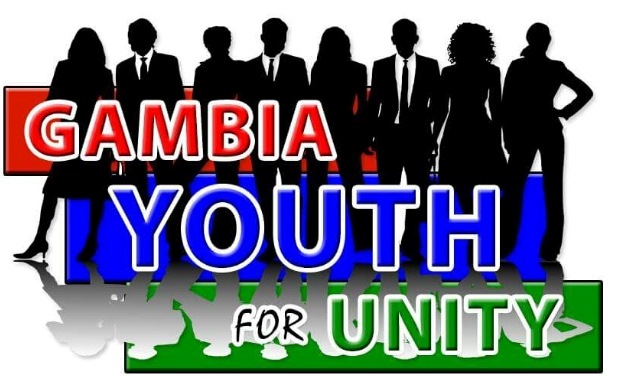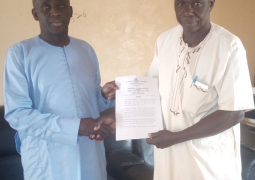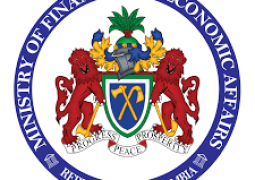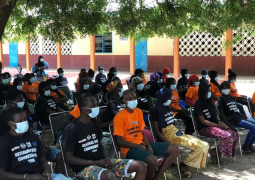
The role of young people in shaping democracy in The Gambia requires a deep historical reflection stretching from the struggles of our forefathers against colonialism and the struggle of young people in the defeat of a 22-year-old dictatorship in 2016.
Therefore, the role of young people in shaping democracy today should not be seen as isolated efforts to ensure accountability and resistance to abuse of power, rather it should be seen as a continuity of struggles long conceived even well before the birth of our independence. However, that history will be worthwhile exploration elsewhere.
Today I want to address the theme by first looking at the efforts at the regional level that were designed to enhance youth participation in democracy.
At the African regional level, the transformation of the Organisation of African Union (OAU) to the African Union (AU) in 2002 marked a renewed commitment to the promotion of democratic institutions and good governance in Africa.
This commitment is premised on the recognition that inclusive participation, good governance and democracy are fundamental pillars of continental development.
In 2013 the AU adopted the Solemn Declaration which called on African states to unite and articulate common development aspirations reflective of the continent’s contextual realities.
That commitment gave birth to the adoption of Agenda 2063 which articulates Africa’s long-term development vision.
Aspiration 6 of Agenda 2063 provides that the continent aspires for an ‘Africa, whose development is people-driven, relying on the potential of African people, especially its women and youth,’
As such, youth are critical to the realisation of Agenda 2063 as over 60% of the continent’s population is estimated to be under the age of 30.
Moreover, in recognition of the role of youth in ensuring democracy, the AU adopted other normative and institutional frameworks that require member states to enhance the participation of young people in democracy, governance and decision-making.
These normative frameworks include the Youth Charter adopted in 2006, the African Charter on the Rights and Welfare of the Child (1990), the African Charter on Democracy, Elections and Governance (ACDEG) (2007), the African Charter on Human and Peoples’ Rights (1981), and the Constitutive Act of the AU (2002).
All these instruments engender rights, duties and freedoms that enhance the meaningful participation of young people in issues that concern their well-being, aspirations, democracy and governance.
Based on these frameworks, the AU also devoted 2017 as the year of ‘Harnessing the Demographic Dividend through Investments in Youth’.
In pursuance of this agenda the African Union Commission designed a roadmap that focuses on four pillars on youth investment.
These pillars are Employment and Entrepreneurship, Education and Skills Development, Health and Wellbeing, and Rights, Governance, and Youth Empowerment.
The fourth pillar which involves Rights, Governance and Youth Empowerment deals with a commitment to ensure youth participation, representation and inclusion in decision-making processes is guaranteed.
The pillar also calls for an inter-generational dialogue that will foster learning for emerging young leaders in the continent.
Drawing from these standards, the AU shows a commitment to enable youth participation in democratic governance.
However, the extent to which youth will effectively participate in democratic governance will depend on the level at which these frameworks are translated into realistic commitments and policies at the domestic level.
Lack of political will and dictatorial tendencies can create a disjoint between regional standards and national efforts.
The Gambia is a party to many regional instruments and in fulfilment of her obligations have adopted policies and laws to enhance youth participation in democratic processes.
Article 89 (1)(b) of the Constitution of the Gambia 1997, sets the minimum age limit to participate in parliamentary elections at 21 years.
For presidency, Article 62(1)(b) sets the minimum age at 30 years. Moreover, Article 196 makes it mandatory on every Gambian to undertake national youth services after attaining the age of 18.
In addition to the Constitution of the Gambia 1997, the government also adopted the National Youth Policy subsequent to the establishment of the Gambia National Youth council in 2000.
The purpose of the NYC council is aimed at enhancing the participation of youth in national development.
The role of youth in shaping democracy in the Gambia was crystallised in the 2016 Presidential Elections when they rallied to elect a new leader that would pave the way for what would be the first democratic change of government in the history of the country since 1965. This change did not only allow the new government of The Gambia to close a dark chapter of bad governance since 1994, but also presents an opportunity for renewed commitment to the respect of human rights and democracy.
In light of that change, the new government of President Adama Barrow pledges to embark on a comprehensive constitutional reform to further consolidate democracy and human rights protection in the Gambia.
The engagement and participation of youth in this election was unprecedented and critical.
Due to their frustration over the autocratic regime of President Yaya Jammeh, they rallied behind the banners of opposition coalition to usher in democratic and constitutional change of government.
Beyond the 2016 elections, from civil society forums, government platforms and on the streets, young people in the Gambia manifest a strong commitment and ethos to ensure that the new government in Banjul lives up to its commitment to democracy, good governance and respect for human rights.
Source-Gambia Youth News





